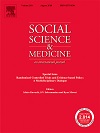The role of physicians in prescribing irrational fixed-dose combination medicines in India

Many irrational fixed-dose combination (FDC) medicines have been approved by the state and central regulatory authorities in India and their use is promoted extensively by pharmaceutical firms. In this study, we examine the previously-neglected role of physicians in India, as their prescriptions are essential for the continued proliferation of FDCs. Primarily using longitudinal data on prescriptions by 4600 physicians spanning 19 disciplinary categories for 48 months between 2008 and 2011 provided by IMS Medical Audit, we study 201 medicines in the cardiovascular and oral-antidiabetic markets. We find that 129.6 million (8.1%) prescriptions for irrational FDCs were written by the sample of physicians in India during the study period, half of which were written by cardiologists and consulting physicians. A further analysis of the regional markets reveals that cardiologists prescribe more irrational FDCs in the richer, metropolitan cities of western India. We also document the role of medical practitioners without an undergraduate degree in medicine in generating prescriptions for irrational FDCs. Our results suggest that an effective government strategy to curb irrational FDCs must recognize that spreading greater awareness about the perils of irrational FDCs is at best an incomplete solution to the problem in India as many who prescribe them are specialists. Organizations such as the Indian Medical Association must develop clear guidelines to stop prescribing such FDCs.
The role of physicians in prescribing irrational fixed-dose combination medicines in India

Many irrational fixed-dose combination (FDC) medicines have been approved by the state and central regulatory authorities in India and their use is promoted extensively by pharmaceutical firms. In this study, we examine the previously-neglected role of physicians in India, as their prescriptions are essential for the continued proliferation of FDCs. Primarily using longitudinal data on prescriptions by 4600 physicians spanning 19 disciplinary categories for 48 months between 2008 and 2011 provided by IMS Medical Audit, we study 201 medicines in the cardiovascular and oral-antidiabetic markets. We find that 129.6 million (8.1%) prescriptions for irrational FDCs were written by the sample of physicians in India during the study period, half of which were written by cardiologists and consulting physicians. A further analysis of the regional markets reveals that cardiologists prescribe more irrational FDCs in the richer, metropolitan cities of western India. We also document the role of medical practitioners without an undergraduate degree in medicine in generating prescriptions for irrational FDCs. Our results suggest that an effective government strategy to curb irrational FDCs must recognize that spreading greater awareness about the perils of irrational FDCs is at best an incomplete solution to the problem in India as many who prescribe them are specialists. Organizations such as the Indian Medical Association must develop clear guidelines to stop prescribing such FDCs.
